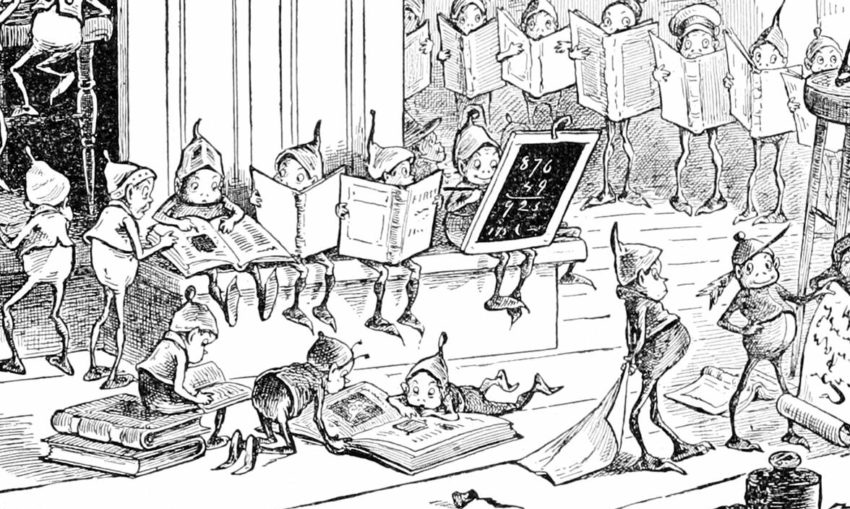I’ve discussed academic addiction before. There are certain things school cannot teach you. But that’s not to say there’s no value to higher learning. Formal education and practical training teach two very different skill sets. And what they seem to come down to is a matter of why vs how.
Like I said in my guide on how to do college the right way, one of the greatest resources schools offer their students is bringing together people who are different. Academic environments allow students the value of peers with differing viewpoints—whether they be other students, instructors or textbooks. This creates an environment of discourse where students can better understanding the context and historical placement of that discourse that they wish to join.
The Unending Conversation
In The Philosophy of Literary Form, Kenneth Burke created the perfect metaphor for the ‘unending conversation’ that students learn to join when they go to college:
Imagine that you enter a parlor. You come late. When you arrive, others have long preceded you, and they are engaged in a heated discussion, a discussion too heated for them to pause and tell you exactly what it is about. In fact, the discussion had already begun long before any of them got there, so that no one present is qualified to retrace for you all the steps that had gone before. You listen for a while, until you decide that you have caught the tenor of the argument; then you put in your oar. Someone answers; you answer him; another comes to your defense; another aligns himself against you, to either the embarrassment or gratification of your opponent, depending upon the quality of your ally’s assistance. However, the discussion is interminable. The hour grows late, you must depart. And you do depart, with the discussion still vigorously in progress. 1
Before a student can join the conversation they need to understand a few things first. They need to understand the lingo everyone is using. They need to know where everyone stands in the argument, and what arguments have already been made. And they need to understand the accepted truths of the group so as to move the conversation forward. Education helps students to better understand that conversation.
Formally educated students understand why things are the way they are and have been encouraged to ask, ‘Why do it in the first place?’
The Value of Practical Insight
But sometimes why isn’t enough. Field experience teaches the practical insight that a school often cannot provide. Students may understand why, but doers understand how things are done.
While academics stress on theory, those with practical experience are the ones who figure out how. This come down to the difference between being able to talk about something and being able to do it.
Don’t Knock the Liberal Arts
Both types of learning and experience are valuable. Theories do not always translate to reality, so practical experience is necessary to weed out bad theories. And not all truth is detectable by our senses. So we use theory to develop beyond the obvious. But there has historically been a class divide between who gets to learn what.
Scott Samuelson, a philosophy professor at a community college in Cedar Rapids, sometimes gets flack for teaching liberal arts to people with who should be learning practical skills. But Samuelson sees some hypocrisy in this. He says:
For the most part, the wealthy in this country continue to pay increasingly exorbitant tuition to private prep schools, good liberal arts colleges, and elite universities, where their children get strong opportunities to develop their minds, dress themselves in cultural capital, and learn the skills necessary to become influential members of society. Meanwhile, the elite speak of an education’s value for the less privileged in terms of preparation for the global economy. Worse yet, they often support learning systems designed to produce “good employees”—i.e., compliant laborers. 2
This is why it’s so valuable for all people to have access to education. Older generations will sometimes complain about millennial baristas who are too educated to do their jobs right. And it’s true—sometimes a lifetime spent in academia will lead to cynicism. But being formally educated doesn’t make you too good for anything. No one is too good for a job they need. But having a formal education does help all people be good citizens rather than good employees.
- Burke, Kenneth | “Ritual Drama as ‘Hub’” | The Philosophy of Literary Form | 1941
- Samuelson, Scott | “Why I Teach Plato to Plumbers” | The Atlantic | 2014

